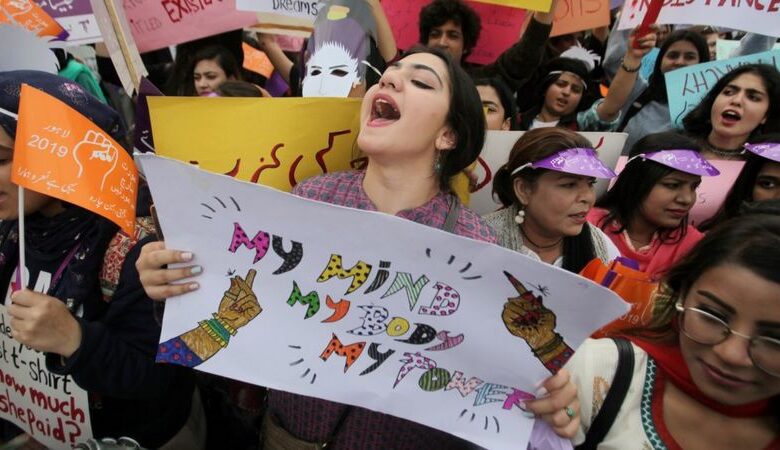
When you hear the word "feminism," images of slogans trending on social media or the annual Aurat March (Women’s March) in Pakistan may come to mind. You may recall specific posters and chants that have sparked heated debates. However, as a woman, I must clarify that I do not support the controversial slogans or demands often associated with these marches. Like many daughters of the East, I do not desire certain “rights” demanded during these events.
Even today, there are men who, as fathers, brothers, or husbands, not only support women's rights but also recognize the importance of their education and empowerment. They do not subscribe to the age-old son-versus-daughter preference.
These men are worthy of respect and play a pivotal role in the success of their daughters, sisters, or wives. Unfortunately, others fail to acknowledge women as human beings—an attitude prevalent among many in our society. Addressing such individuals often feels like a futile endeavor.
Women seek the basic human and religious rights they deserve. They demand to be treated as individuals, not as machines or commodities. The question arises: what rights do women truly need?
Also Read: Grand Peace Jirga Negotiations Conclude in Kurram: Agreement Expected
Women want:
Women also wish to be spared the threats of divorce or physical abuse over trivial matters. It’s unacceptable for a husband to dismiss violent actions with excuses like, "I was angry; it just happened."
Some argue, "Islam has given all these rights to women, so what more do they want?" True, Islam ensures women’s rights, but are these rights truly implemented in our society?
For instance, boys often enjoy uninterrupted access to education, but girls are frequently denied this basic right. Excuses range from "She's meant for another household" to "The environment isn't safe." These attitudes ignore the prophetic saying, “Seeking knowledge is an obligation upon every Muslim, male and female.”
Similarly, while inheritance is a woman's Islamic right, claiming it often leads to estrangement and lifelong familial conflict. Women face backlash for voicing preferences in marriage, and divorcees or widows are subjected to stigma, robbing them of their right to a dignified second chance at life.
Countless women work tirelessly to support their families in the absence of male breadwinners. Instead of looking down upon these women, society should honor their resilience and support them. Harassment in workplaces, educational institutions, and public spaces remains a pressing issue that demands immediate attention.
Contrary to misconceptions, women do not see men as adversaries or seek to exclude them from society. Instead, women view men as their protectors and partners in building a balanced community.
To those advocating for women’s rights through the Aurat March and similar movements, I offer this advice: avoid slogans and agendas that complicate the lives of women striving for education and professional success. Instead, focus on practical efforts that align with our Islamic and cultural values.
Feminism, in its essence, is not about division but about ensuring justice, dignity, and opportunity for women—values that resonate with our shared humanity and heritage. Let us pave a path for true empowerment, rooted in mutual respect and understanding.